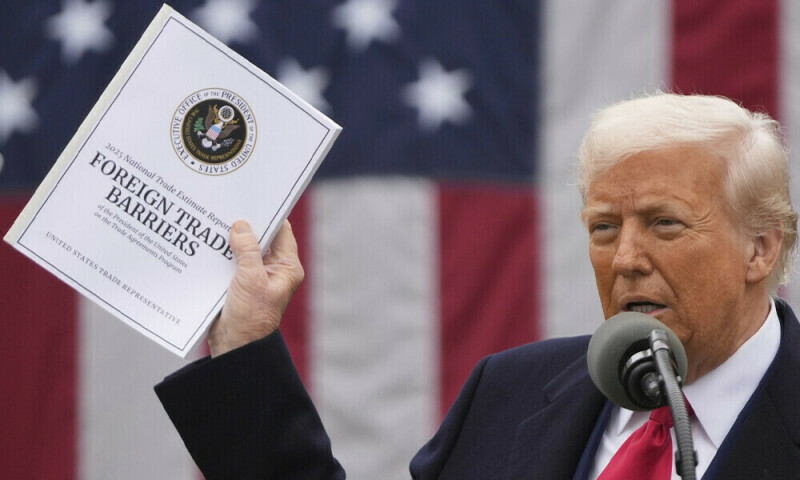Amid escalating US trade protectionism, Pakistan must adopt a proactive and strategic approach to safeguard its exports, urged a recent report analyzing the impact of US President Donald Trump’s reciprocal tariffs.
The evolving trade landscape, shaped by US protectionist policies and reciprocal tariff measures, presents challenges for Pakistan, according to a report by the Policy Research and Advisory Council (PRAC), the research cell of the Karachi Chamber of Commerce and Industry (KCCI).
“The 29% tariff on Pakistani goods threatens price competitiveness, especially against India, Bangladesh, and Vietnam. However, higher tariff increases on Vietnam and Bangladesh create opportunities for Pakistan to expand its market share in textiles, food products, and plastics,” read the report.
Compared to its regional competitors, Pakistan’s tariff rate is slightly higher than India’s (26%) but lower than Bangladesh (37%) and Vietnam (46%).
Last week, Trump ignited a potentially ruinous trade war as he announced new tariffs on imports from around the world and harsh additional levies on key trading partners including Pakistan.
Analyzing, Pakistan and US trade relations, the report found Pakistan’s heavy reliance on textile exports, with minimal diversification in its export portfolio.
“Textiles account for the majority of Pakistan’s exports to the USA, making up 77% of the total export volume. The total value of textile and textile articles exported amounts to $4.18 billion, making it by far the most significant category in terms of trade value,” it said.
Trump’s trade war: a challenge with an opportunity for Pakistan textiles
The report showed that Pakistan enjoys a trade surplus of over $3.3 billion with the US.
“However, this surplus also exposes the country’s reliance on a limited number of sectors, such as textiles, which could make it susceptible to fluctuations in global demand or changes in trade policies that affect this crucial industry.
“With the swift evolution of US foreign policy and trade patterns under Trump’s administration, the lack of export diversification may threaten Pakistan’s unique trade surplus with the US, in contrast to other nations,” it said.
PRAC urged authorities to adopt a proactive trade strategy that prioritizes export diversification, enhances supply chain efficiency, and strengthens its trade diplomacy efforts.
“Engaging proactively with US trade officials to discuss potential tariff adjustments is critical in safeguarding Pakistan’s market share in the US.
“In addition, by reducing reliance on a narrow export basket, improving production efficiencies, and securing new markets, Pakistan can mitigate the impact of rising tariffs and safeguard its existing exports.
“Implementing these measures will not only protect the country’s trade interests but also position it for greater resilience and competitiveness in the global market,” it added.
The report warned that without strategic diversification, its export portfolio –heavily reliant on textiles and concentrated in the US market – could experience further decline.


